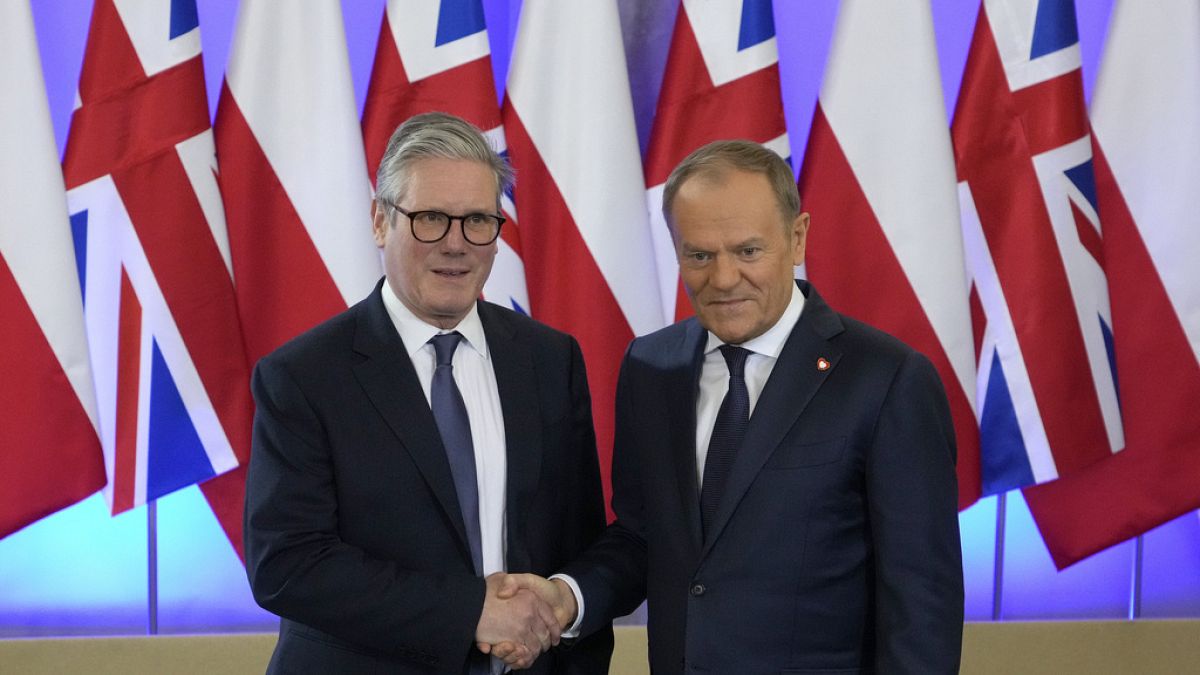UK’s David Lammy is in China — just don’t call it a reset
The new Labour government's attitude toward Beijing seems in contrast to that of its Conservative predecessors.
LONDON — When it comes to engagement with China, the U.K. government isn’t hanging around.
Foreign Secretary David Lammy arrived in Beijing Friday as the new Labour government showed signs it is prepared to cultivate closer links with premier Xi Jinping.
Lammy’s trip falls just outside Labour’s first 100 days in office and follows his undertaking to “adopt a more consistent strategy” to that of the Conservatives over the past 14 years in office.
Earlier this week, Business Secretary Jonathan Reynolds told POLITICO that Britain “needs more engagement with China” and had been “an absolute outlier” in its approach compared with other G7 countries.
Government officials deny that ministers are seeking “a reset” of relations with China, while stressing that they want to open a new chapter of regular dialogue with the superpower.
Lammy has forged ahead with his diplomatic push even as the government carries out its own major review intended to “set the direction” of London’s relationship with Beijing, in the foreign secretary’s words.
The visit by the U.K.’s top diplomat marks a distinct change in tack from the previous Conservative government, which faced internal pressure from its own Sino-skeptic MPs.
A change of tack
In March, then Prime Minister Rishi Sunak described China as the “greatest threat” to the U.K.’s economic security, accusing Beijing of being behind cyberattacks against British MPs and democratic institutions.
When former Foreign Secretary James Cleverly traveled to China in 2023, it was the first such visit in five years, indicative of the cooling of the Tory Party’s approach to China since the “golden era” of David Cameron and his chancellor, George Osborne, when Beijing was actively courted.
Lammy has been forced to accelerate his plans for a detailed China policy after July’s snap election.
In an essay published in April setting out his foreign policy vision, he argued the U.K.’s approach to China had “oscillated wildly over the past 14 years” of Tory rule, and vowed to “adopt a more consistent strategy.”
The Foreign, Commonwealth and Development Office confirmed it had launched its cross-Whitehall audit of the U.K.’s relationship with China, promised by Lammy as one of the incoming government’s first priorities, with very little fanfare earlier this week.

Two government officials, granted anonymity as they were not authorized to speak publicly, said Lammy’s visit should not be seen as a reset. They stressed that the U.K.’s key areas of disagreement with China, such as authoritarian rule in Hong Kong and support for Russia against Ukraine, are unchanged.
The U.K.’s stance that China should drop sanctions imposed against seven MPs and peers who spoke out about alleged human rights abuses also remains the same.
Cooperation and challenge
Instead, the officials said the government’s priority was to re-engage with China to ensure discussion of these issues along with areas with the potential for cooperation and economic benefit.
Keir Starmer’s official spokesperson told journalists Thursday: “We will continue to challenge China on issues that are in the U.K.’s national interest … whilst also seeking to build a pragmatic and strategic approach with China, looking for areas of cooperation where they exist.”
However, Reynolds’ comments on the sidelines of Monday’s international investment summit will add to the impression that Labour is prepared to get closer to China than may have been anticipated before the election, as the new government pushes desperately for growth to get it through a tricky set of economic circumstances.
Some industry figures view the U.K.’s reluctance to follow its allies in putting tariffs on Chinese EVs as part of a strategy to mend ties and court investment.
One Whitehall official, granted anonymity to speak on sensitive matters, claimed Chancellor Rachel Reeves was “far more like Osborne than she realizes” — a reference to the former chancellor’s unapologetic wooing of the communist republic when he was in her job.
Neil O’Brien, a Conservative MP who was among the parliamentarians sanctioned by Beijing, told POLITICO the new Labour government’s warmer stance toward China was a mistake.
He accused Starmer and Lammy of “embarking on a naive attempt to suck up to China in which our own industrial interests will get trampled as we pursue an illusory dream of a special relationship with a superpower that is hostile to us.”
David Alton, a crossbench peer also sanctioned by China, said “we are still dealing with a regime that does not share our values,” adding that it was “not encouraging” to hear the government talk of prioritizing trade before the audit had concluded.
What's Your Reaction?




















































